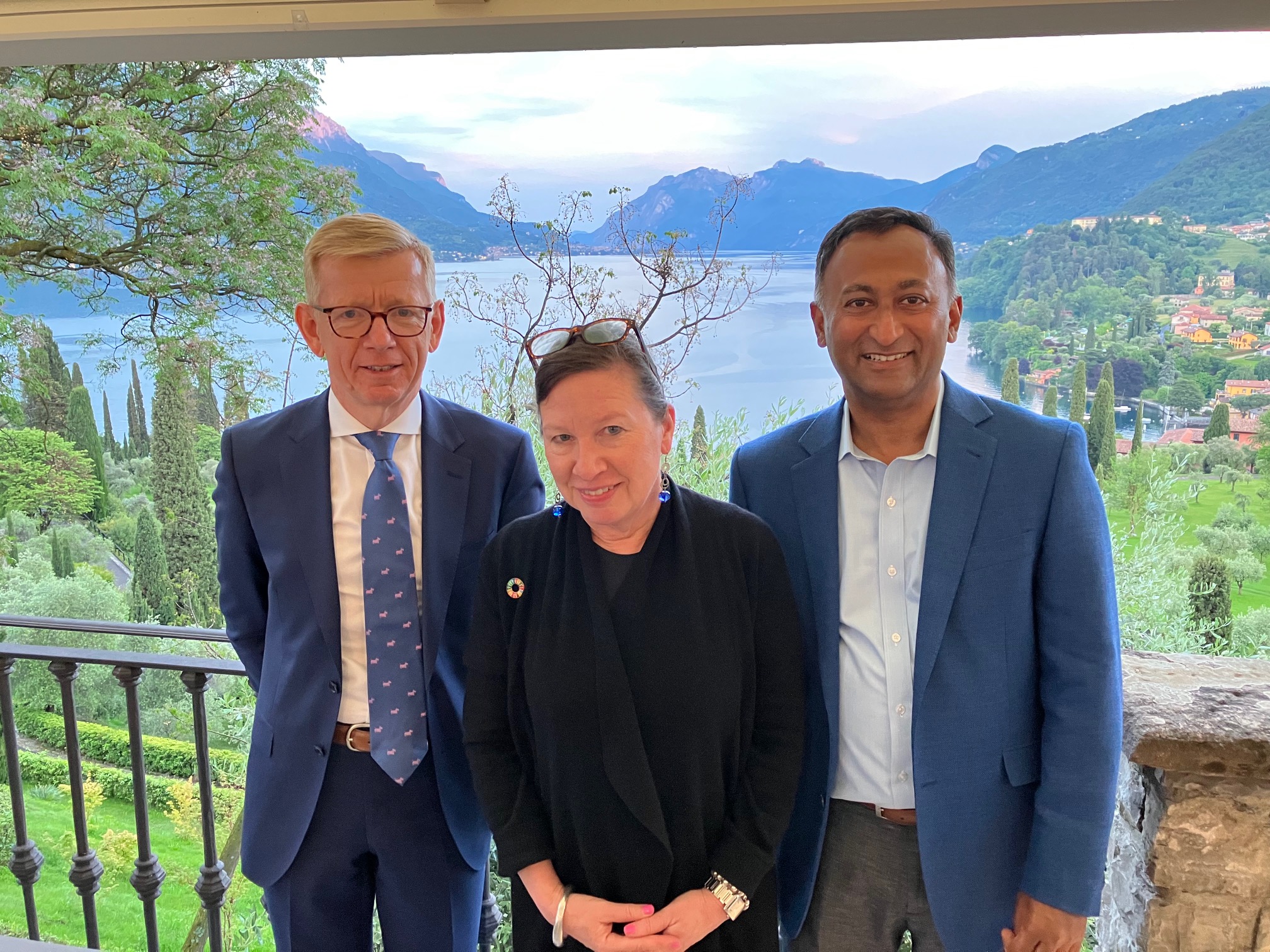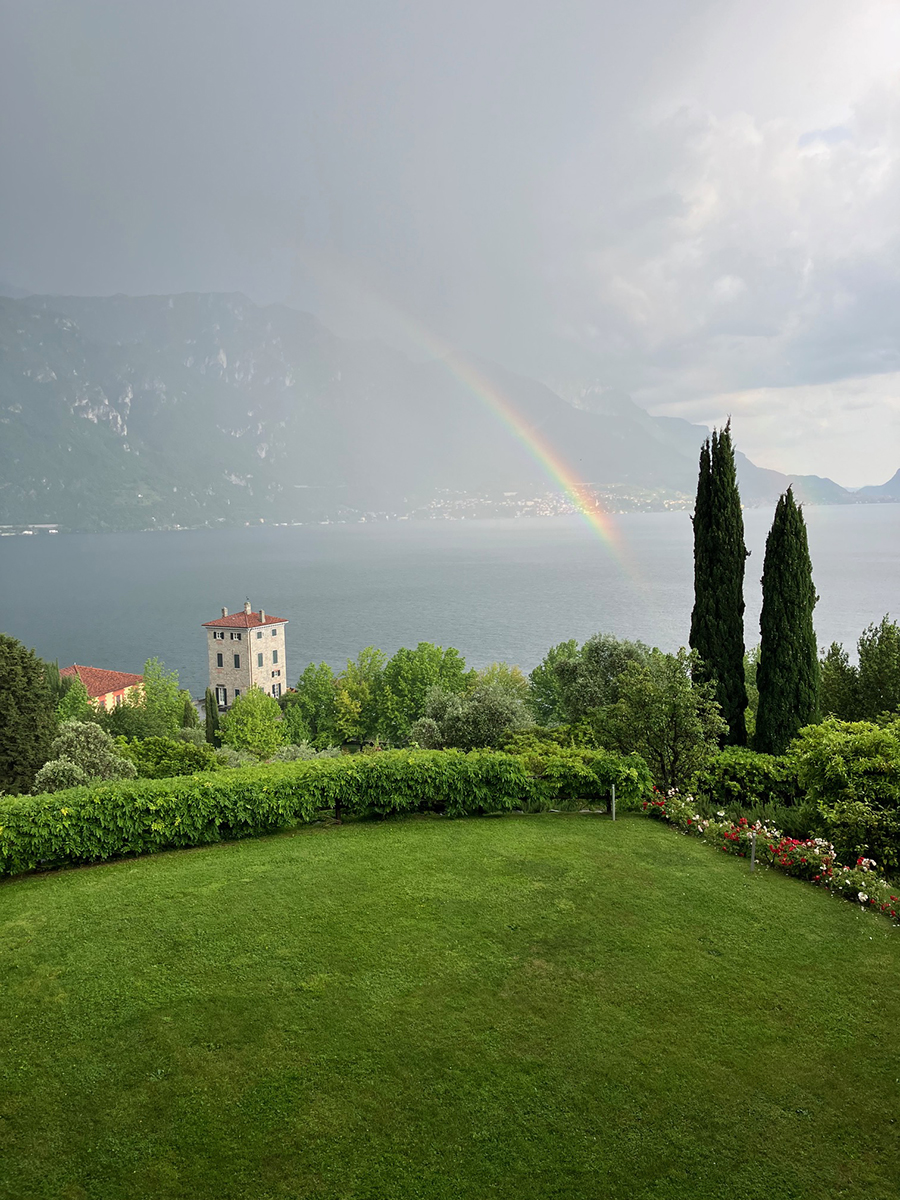Creating a Community of Practice on Human Rights and the Sustainable Development Goals
by Sarah Bender and Sarah Mendelson
For the last several years, Amb. Sarah Mendelson, together with teams of students and a few faculty members from the Heinz College of Information Systems and Public Policy, has been researching the impact of Covid relief and recovery funds on social justice issues in a handful of North American cities. These efforts, supported by The Rockefeller Foundation, are part of her work on the Sustainable Development Goals (SDGs). Last year, with support from the Packard Foundation, the team took their findings to the World Justice Forum in The Hague to reflect on what they had learned and what more was needed to drive positive outcomes. Related to this work, growing out of the Brookings Institution and Rockefeller Foundation’s flagship 17 Rooms exercise, Mendelson, Distinguished Service Professor of Public Policy and Head of Heinz College in Washington, D.C., has since 2020 convened senior human rights scholars and practitioners to explore how to teach and train human rights differently using the SDGs. Those combined work streams led recently to an in-person meeting by Mendelson at The Rockefeller Foundation’s Bellagio Center.
The stated purpose of the strategic convening was to co-create a community of practice dedicated to growing the next generation of human rights experts, activists, practitioners, and scholars through education about and research on the SDGs. Another purpose was to co-create a plan to accelerate action on this nexus of human rights and the SDGs.
This year marks the midpoint to advancing the 2030 Agenda for Sustainable Development, a 15-year set of policy priorities created by the international community — with input from millions of people around the world — and adopted at the United Nations to end poverty, protect the planet, and improve the lives and prospects of everyone on Earth. While progress has been made in some areas, the general consensus is that a significant push is needed in the next few years for the goals to be met.

Awash in crises, and at this midpoint, there are numerous calls to “rescue” the SDGs, most prominently including from the UN Secretary General. Meanwhile, in the human rights community, a downbeat cottage industry has arisen around pessimistic themes such as the “end times” and a failed, last “utopia.” The SDGs offer a way of “doing things differently,” to quote the overview of a recent collection of essays contributed to by Mendelson from the Brookings Institution (where she is a also a non-resident senior fellow). The essays are aimed at policy makers in the lead up to the Head of State Summit on the SDGs due to take place at the United Nations in September.
The Bellagio participants view the SDGs as a 21st century way of engaging rights enshrined in the Universal Declaration of Human Rights (UDHR), now in its 75th year. The UN High Commissioner for Human Rights, Volker Türk, shares the perspective of those at the convening, and much discussion centered around ways to collaborate with the OHCHR, with his SDG team lead joining the gathering in Bellagio. Specifically, participants were focused on elevating socio-economic rights and reducing inequality and inequity.
“Those who joined me in Bellagio took seriously the concept of Leave No One Behind, the watchwords of the 2030 Agenda for Sustainable Development, which applies domestically as well as internationally. We also were very focused on the need to close data gaps — especially disaggregated data gaps by race, gender, income, and locality — to help shape demand-driven policy responses to the social justice needs that, in fact, have to date left many behind,” said Mendelson. “Our approach centers on using the SDGs to measure specific aspects of development and well-being within communities with the intention of over time improving the quality of people’s lives — in targeted cities in particular — and refresh how we think of and measure human rights using disaggregated data. That is all quite different from traditional approaches that are focused on legal frameworks, conventions, and treaties at the national level. It is not that they are not important but that additional modalities are needed to deliver rights and make them relevant for communities. We posit that this can help drive democratic renewal.”
At CMU, Mendelson co-chairs the Sustainability Initiative and is a faculty affiliate of the Scott Institute for Energy Innovation. This year, she was also named co-chair of SDSN USA, a network of universities and research institutions across the United States committed to sustainable development. She previously co-hosted two convenings in 2018 and 2019 with the International Youth Foundation supporting youth and the SDGs, which served as building blocks for the 2023 gathering.

For three days in May, leaders from CMU — including Helen and Henry Posner, Jr. Dean of the University Libraries Keith Webster and Associate Dean of Digital Infrastructure Sayeed Choudhury — joined Mendelson and scholars from the University of Pittsburgh, Oxford, USC, Occidental, the University of Connecticut, Northeastern, Georgetown, Columbia, and the University of Pretoria as well as representatives from the LA Mayor’s office, the UN’s OHCHR, the World Justice Project, and the Association of Commonwealth Universities. Participants included lawyers, political scientists, engineers, and data scientists. Most had spent decades working on human rights. Some were steeped in the SDGs, while others were open-minded newcomers.
The topics discussed ranged from broad framing topics (“Opportunities to Build on the UDHR and Reframe Human Rights Using the SDGs in the 21st Century”) to specific case studies (“Deep Dive on Los Angeles”). Several topics will be detailed in an edited volume due out in 2024 as part of a series on the SDGs and higher education. The last day of the convening was all about what comes next in terms of action. Several participants used different prompts for Chat GPT to sort priorities. From the gathering, a number of ambitious plans emerged.
First, the community of practice agreed to (the admittedly hard work) of developing solutions addressing social justice issues of importance to local communities. Through collaborations between universities and local communities, this work stream would seek to generate data, and specifically, to build open-source data portals, on needs, gaps, and the positive impact of policy interventions.
“We also want to reframe what are considered ‘hard’ or ‘wicked’ human rights challenges, not only crises in places like Yemen or Syria but also the 20+ year gap in life expectancy between demographic groups in American cities such as Washington, D.C. or the spike in maternal mortality for Black women in this country,” Mendelson explained.
Next, the cohort discussed surfacing solutions, mining (likely aided by AI) the over 200 Voluntary Local Reviews (VLRs) generated by cities and regions around the world. These will be used to elevate good practices as well as create case studies, tell meaningful stories, and build toolkits to demonstrate effective solutions to social justice issues.
The community of practice is intent on building a repository to house case studies, disaggregated data sets, and more. It will foster collaboration around access to and the transparency of people-centered open data ecosystems.
 Finally, the group will share examples of engaging students on the SDGs, both inside and outside the classroom. This will include capstone/systems projects, MOOCs, hackathons, gamification, moot courts, shadow VLRs, and more. The group will also experiment with creating SDG advisors at universities, to help students select SDG-related courses, engage in SDG-related research opportunities, and identify relevant job openings.
Finally, the group will share examples of engaging students on the SDGs, both inside and outside the classroom. This will include capstone/systems projects, MOOCs, hackathons, gamification, moot courts, shadow VLRs, and more. The group will also experiment with creating SDG advisors at universities, to help students select SDG-related courses, engage in SDG-related research opportunities, and identify relevant job openings.
“We anticipate a substantial body of work will be US-focused, including developing collaborations with colleagues in a handful of American universities and cities. That said, many in our network have decades of international development experience, and CMU is a global university. We will therefore seek support to also apply our paradigm shift and collaborate with colleagues internationally with a particular focus on Africa and Latin America,” Mendelson notes.
The ultimate goal of all this work is to help democracies deliver and envision sustainable futures where rights are realized. To read more about the problems the Bellagio convening tackled, what can be done about them, proposed actions, desired outcomes, and the participants, please visit: heinz.cmu.edu.
